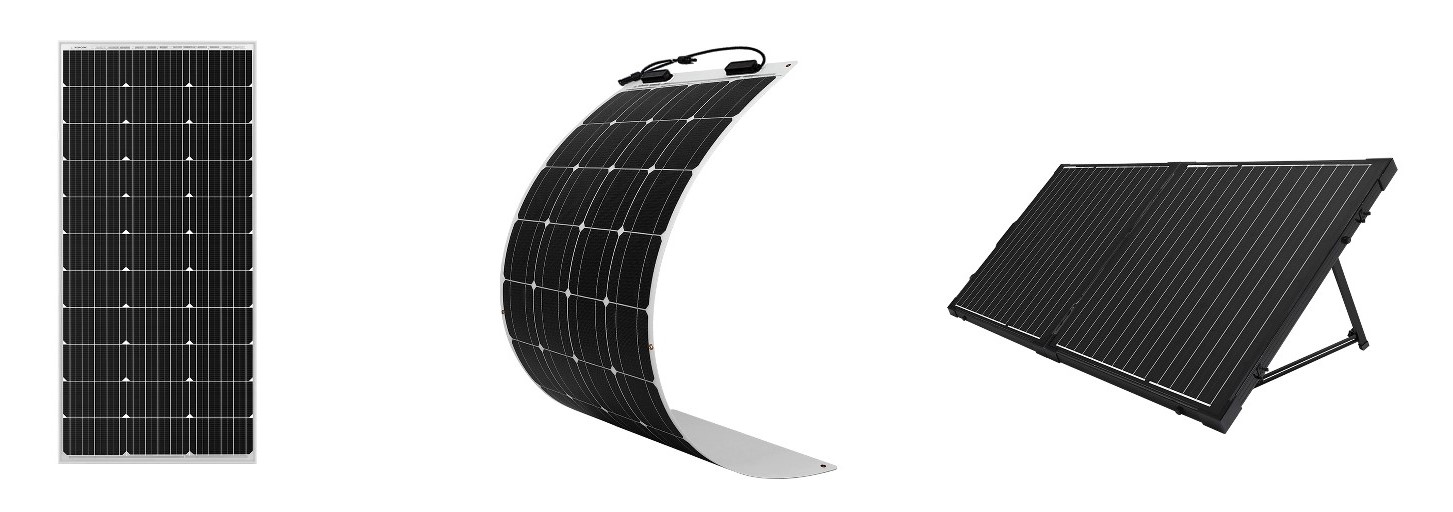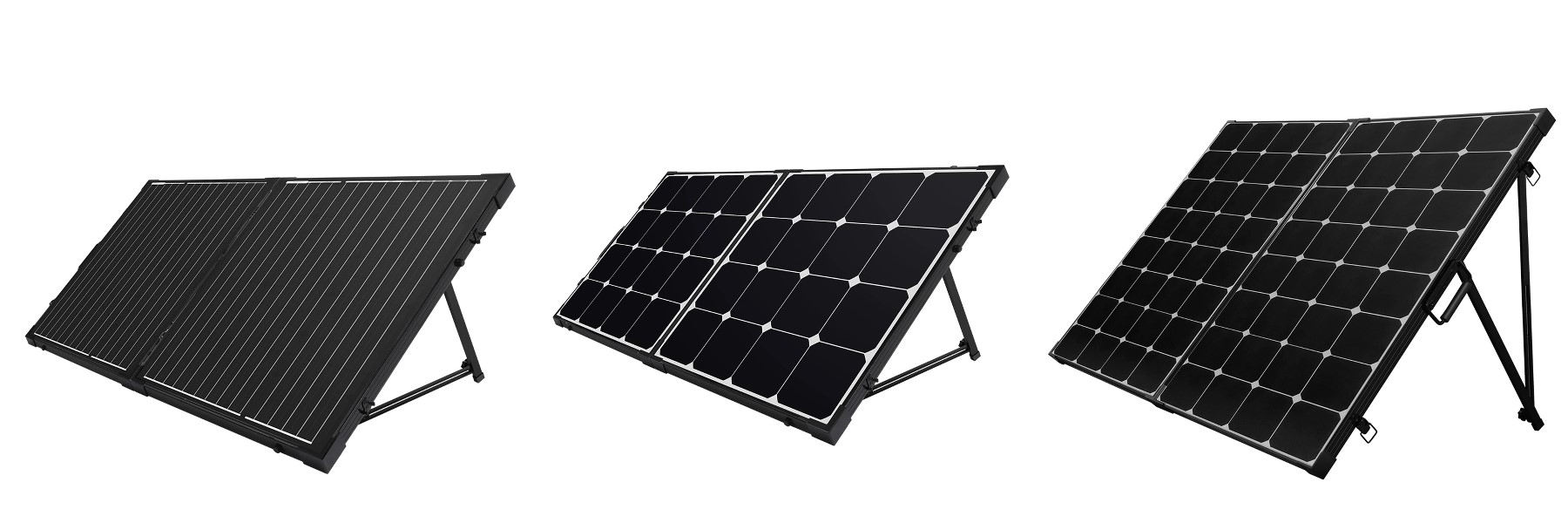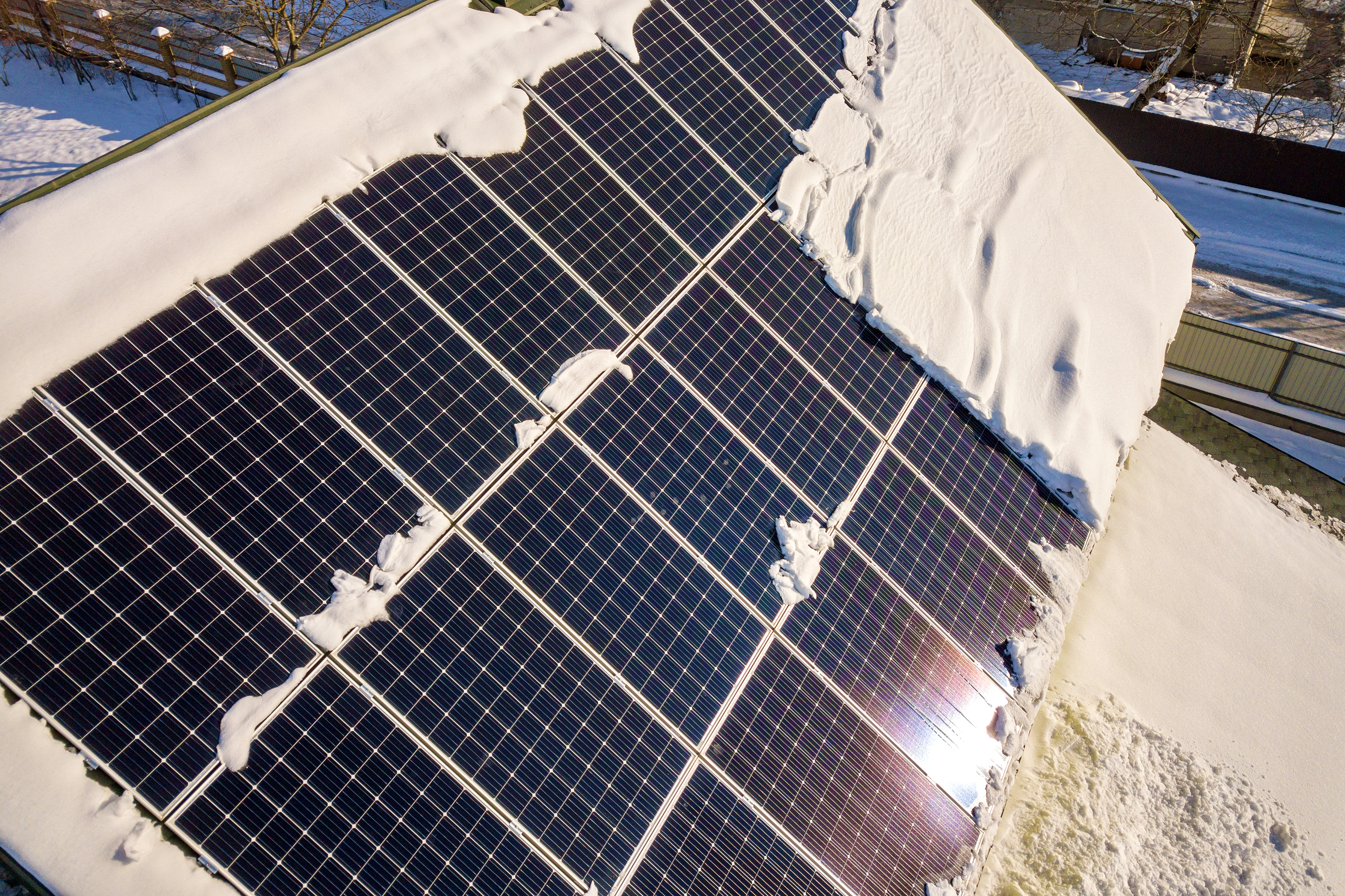What to know when shopping for 12v solar panels
When you think of
solar panels, many people envision standard 12 volt solar panels that are mounted to the roof. And it’s easy to see why. 12 volt solar panels are versatile, safe, and powerful enough for many household and mobile applications. Because solar panels are such an important component of every installation, it’s important to do your research. What should you consider when shopping for solar panels? Are 12V or 24V panels best, and how can you maximize their efficiency?
How do solar panels work?
When shopping for solar panels, it can be helpful to understand how they work. Photovoltaic solar panels are made up of many solar cells made of silicon. These cells have both a positive and a negative layer, which creates an electric field. When sunlight hits your solar panel, it creates an electric current. This current, pushed by voltage, passes through the wires and components in your system.
What’s the deal with watts and volts anyways?
When shopping for solar components, you’ll see they all typically have watts and volts specifications. Solar installations are rated based on how much energy they produce. As you may remember from a high school science class, energy is equal to the product of power and time.
Power (watts) is equal to the product of voltage and current (amps). To know how much power a system produces, you need to know both the system voltage and the output current. If systems 1 and 2 both have the same output voltage, the system that produces the most power is the one that produces the most current for a given amount of sunlight.
The higher the current the larger the wiring and circuit protection components need to be. This is important to note because larger diameter cables and fuses can get very expensive. However, by doubling the voltage you get double the power at the same current.
Should I go for a 12V system or do I need a higher voltage system?
12 volt systems are the most popular option for solar installations due to its versatility.
12v systems are good for many DIY solar scenarios, such as:
- 1. RVs/motorhomes/vans
- 2. Camper trailers
- 3. Small cabin or tiny home
RVs and motorhomes typically already have 12 volt batteries for lighting, hot water heater controls, AC/heating controls, and refrigerators. Therefore, it makes sense to use the voltage that already works for that system.
If your energy needs are around 1,000 to 5,000 watts, go for a 24 volt system.
24 volt systems are suitable for:
- 1. Large homes and apartment buildings
- 2. Commercial and industrial buildings
- 3. Parking structures
If your energy needs are over 3,000 watts, go for a 48 volt system. Large off-grid houses often use 48V.
What are the benefits of using 24v panels?
As mentioned, 24 volt panels are suitable for larger installations, One of the main benefits of using a larger voltage system is that an increase in voltage causes a reduction in the current flowing through it. This means you can use thinner cables for the same amount of power, which leads to a much lower wiring cost.
You can also typically see better inverter efficiency and regulation with higher voltage systems because an inverter doesn’t have to work quite as hard to keep its output constant.
How do I determine compatibility of components in a 12V or 24v system?
If you purchase a 12v solar panel you should pair it with a 12v battery, a 12v inverter, and at least a 12v charge controller. A 24v solar panel should be used with a 24v battery bank, 24v inverter, and at least a 24v charge controller. A 24v battery is not available, so you’ll have to connect two 12v batteries in a series connection in a battery bank.
It’s also very important that your solar panel’s rating is not higher than that of charge controllers, so be sure to check your charge controllers list of specifications. If you had 12 volt solar panels and your amps are 14, you would need a charge controller that had at least 14 amps. However due to environmental factors, you need to factor in an additional 25%. This brings the minimum amps that this charger controller must have to 17.5 amps. In this example, you would need a 12 volt, 20 amp charge controller.
How do I know what my energy needs are?
It’s incredibly important to properly size your solar installation. To determine what size system will best fit your needs, we recommend using the
Renogy solar panel calculator. The solar sizing calculator allows you to input information about your lifestyle and appliances used to help you decide on your solar panel requirements. The solar panel calculator will then be able to tell you the minimum and recommended system size, as well as the recommended battery output.
How many panels would I need to charge a 200ah battery?
If you have a 200ah battery, only 80% of that is usable due to depletion limitations, so you actually only have 160 amp-hours of energy to draw on. If you know that you typically can last two days with energy from that battery, that means you consume 80 amp hours a day.
Let’s say that you have a 100 watt 12 volt panel that will produce an average of about 30 amp-hours per day (based on an average sunny day). This means you would need three 100 watt solar panels or one 300 watt 12 volt panel to fully recharge your battery on the average day.
Should I choose monocrystalline or polycrystalline panels?
Polycrystalline panels, which are light blue in color, are less energy and space efficient than monocrystalline panels, but they are also cheaper. Monocrystalline panels, which are darker in color, are more energy efficient. If you have higher energy needs, limited roof space, or efficiency is of utmost importance, we’d recommend purchasing monocrystalline panels.

Portable vs. Roof Mounted Panels
Roof mounted,
rigid panels are the most common solar panels on the market and are also the most durable. If you’re looking to mount your solar panels on a non-flat roof, flexible panels are a great option. Roof mounted panels are ideal if you have consistent energy needs, are installing solar for your home, and want to be able to charge your battery bank at the flip of a switch.

Portable
solar panel kits can be a great solution for those not ready to install a solar system on their roof, have limited space, want to generate solar while both on the open road or at home, or who have smaller energy needs. Portable solar panel systems are typically available as folding suitcase panel kits that can be set up on the ground and angled for maximum efficiency. They are lightweight and easy to handle, making them ideal for those travelling.

Do panels perform best in cold or warm climates?
Contrary to popular belief, solar panels are actually more efficient in colder temperatures. When solar modules get too hot, they produce less energy. If it snows, solar panels also typically generate enough heat to melt any snow off the panels.
How do I care for solar panels?
One of the great things about solar panels is how little maintenance they require. We encourage you to wash off the panels at least once a year to remove any dirt or other residue that may have collected on the panels. If you live in an area where it snows be sure to make sure your panels don’t get buried in a heavy snowstorm and consider purchasing a snow removal brush, if so. Typically the heat generated from solar panels will be able to melt the snow from lighter snow storms. It’s also a good idea to visually examine the panels at that time to make sure all connections are in place and in working condition.
Conclusion
As you can see, utilizing 12 volt
solar panels are a great way to become more energy independent, save money on utility costs, eliminate the need for gas-powered generators, and ensure reliable access to energy when you need it. As the technology and efficiency continues to improve, while the costs continue to lower, there’s never been a better time to go solar.






